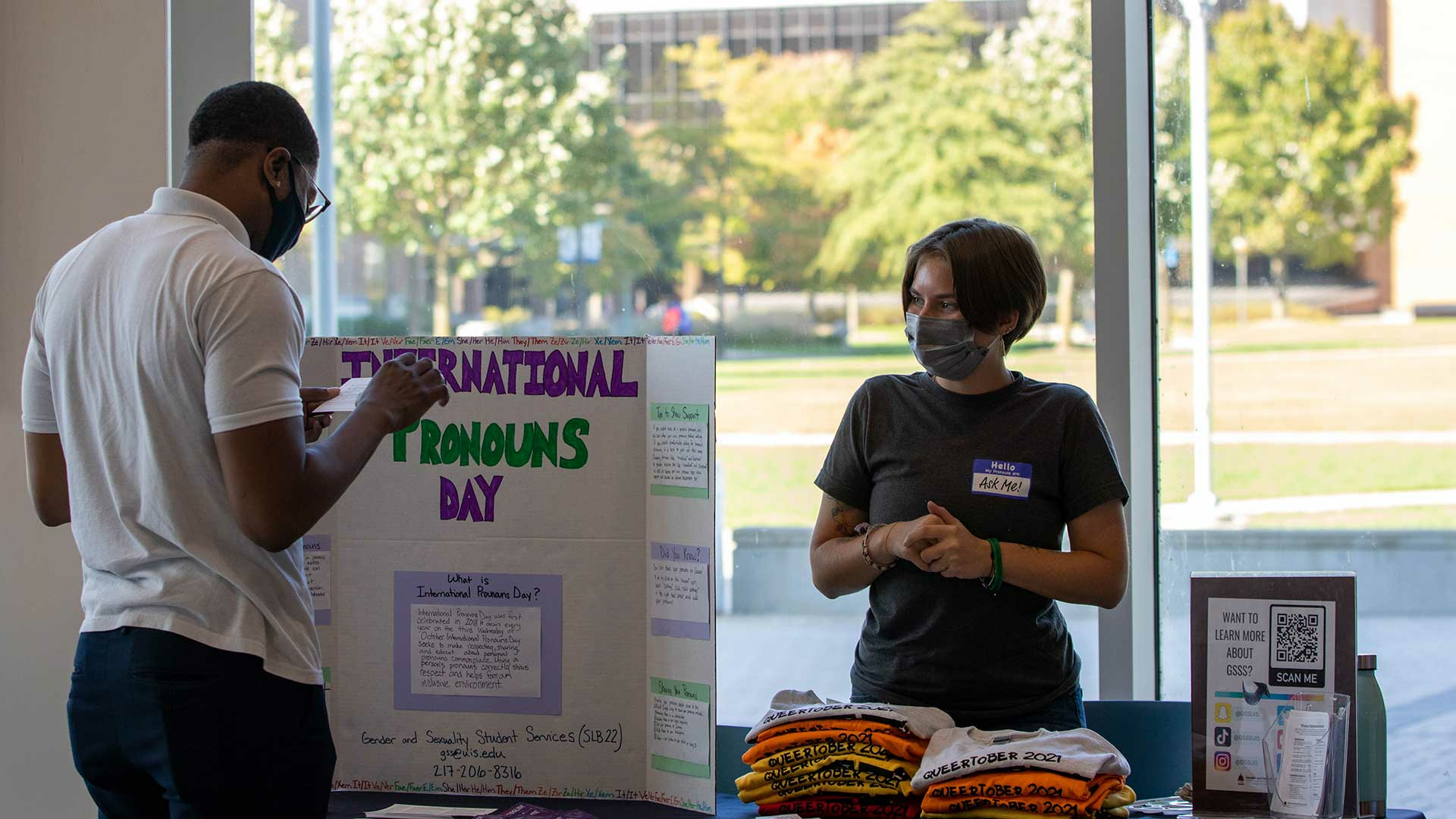Welcome to the Bisexual Resource Guide @ UIS. This is a guide to help bisexuals at UIS to find the resources they may need. We want to make sure that nonmonosexual people at UIS are able to find support on this campus. The Bisexual Resource Guide is a living document which means that we are open to suggestions for other resources that we might have missed. If you would like to leave a resource suggestion please email us at gss@uis.edu
Bisexual is a term used to describe a person emotionally, physically, and/or sexually attracted to males/men and females/women. This attraction does not have to be equally split between genders and there may be a preference for one gender over others.
Resources
Online Resources
The Bisexual Resource Center (BRC) is an organization that focuses on raising awareness about bisexuals in the LGBTQ community
Print Resources
Books from Brookens Library
- Vice versa: bisexuality and the eroticism of everyday life
- Bisexuality: a study
- Closer to home: bisexuality and feminism
- Bisexuality in the United States: a social science reader
- Bi men: coming out every which way
- The Bisexual spouse: different dimensions in human sexuality
- Treating lesbians and bisexual women: challenges and strategies for health professionals
- Getting bi: voices of bisexuals around the world
- Becoming visible: counseling bisexuals across the lifespan
- Bi-sexual Love
- Look both ways: bisexual politics
Disability Bisexual Resources
Planet DeafQueer's Resource List is a website devoted to providing information and resources for deaf and queer people. Topics include: Arts and Entertainment, Health and Wellness, News and Politics, International Spotlight, and Video Spotlight.
Bisexuality Myths
Bisexuality is just a phase. Nobody stays bisexual.
Reality: 92% of people who identified as bisexual still do 10 years later (Diamond, 2008).
Bisexuals are greedy and need to be with a man and woman at once.
Reality: The capacity to form attractions to either gender does not necessarily equal a need for two partners at once. In fact, private polyamorous arrangements have been found among married heterosexuals (15-28%), cohabitating couples (28%), lesbian couples (29%), and gay male couples (65%) (Weitzman, Davidson, & Phillips, 1999). Most bisexuals do not have to be involved with more than one gender at a time in order to feel fulfilled (Cahill, 2005).
Bisexuals don’t exist.
Reality: Alfred Kinsey’s work in the 1940’s (Kinsey, 1998) would disagree. More recent data shows that bisexuals make up the largest group within the LGB community with 1/3 of men and 2/3 of women (Cahill, 2008). According to the National Survey of Family Growth (CDC, 2005), 2.8 percent of women ages 18 to 44 identify as bisexual. In comparison, 1.3 percent identify as lesbian.
Bisexuals are promiscuous.
Reality: It is a mistake to assume that because someone has the potential to be attracted to all genders, they must have twice as many sex partners (Rust, 2001). Bisexuality is a sexual orientation independent of any cultural definition of what is moral behavior.
Bisexuals are more likely to have sexually transmitted diseases.
Reality: Who a person is does not determine likelihood of disease. What a person DOES, the sexual practices of a person, in particular, and how well a person protects themselves during sexual activities is more determinative. (Miller, Andre, Ebin, & Bessonova, 2007).
Bisexuals are accepted within the gay and lesbian community.
Reality: Lesbian, gay, trans, and heterosexual people harbor misinformation and biphobia (Welzer-Lang, 2008). Heterosexual people may consider bisexuals as “confused” while lesbian and gay people will not see bisexuality as a valid sexual orientation due to stigma around sexual “preference” as a choice.
Everybody is bisexual.
Reality: Although it is completely possible for people to experience an attraction for someone of the same gender at some point in their lives (Fox, 1995), this myth confuses fantasy/attraction for experience and identity. For most people these feelings pass or change over time without the person ever questioning or redefining their sexual orientations.
